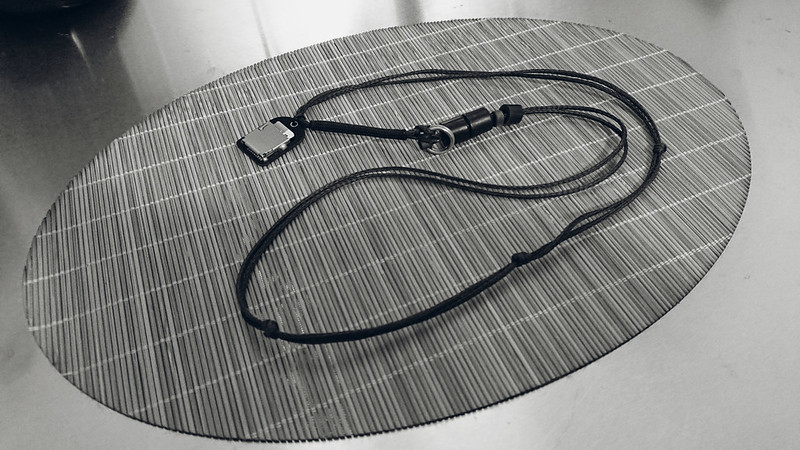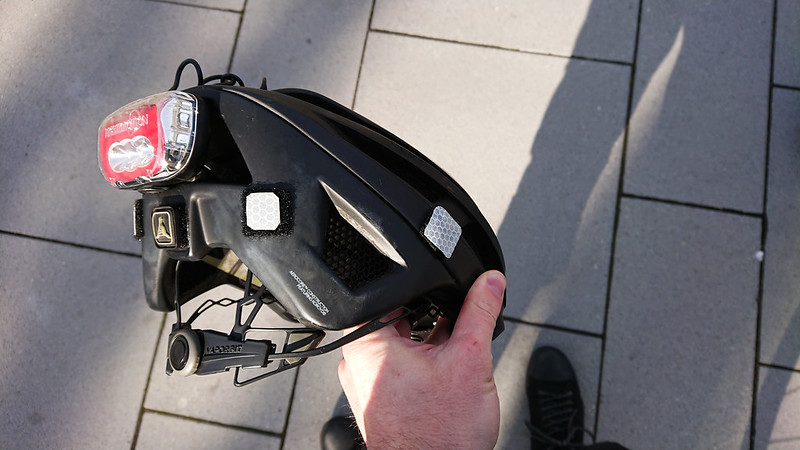The size and durability of MicroSD cards make them an attractive option for carrying important data.
In my experience they are unlikely to be damaged by incidental moisture, whether that be from rain, sweat or the occasional shower. But a single card is small enough that I always worry it will be lost, and it is susceptible to being snapped if carried inappropriately. The Digital Dogtag from N-O-D-E is one of the better solutions I’ve found for carrying a single MicroSD card. It uses a simple spring loaded socket to hold the card securely, and provides enough rigidity that I’m not worried about damaging the card. I added the dogtag to my current APEK iteration this past September and have been happy with the result.

